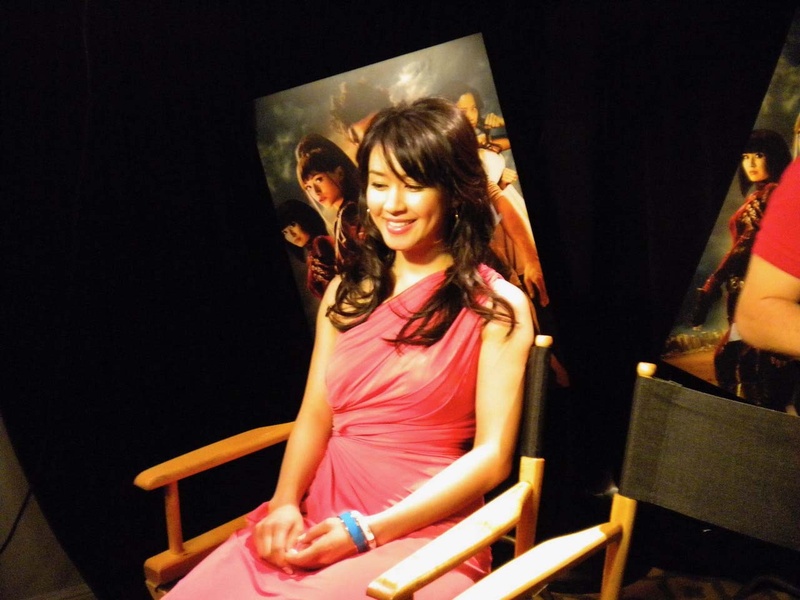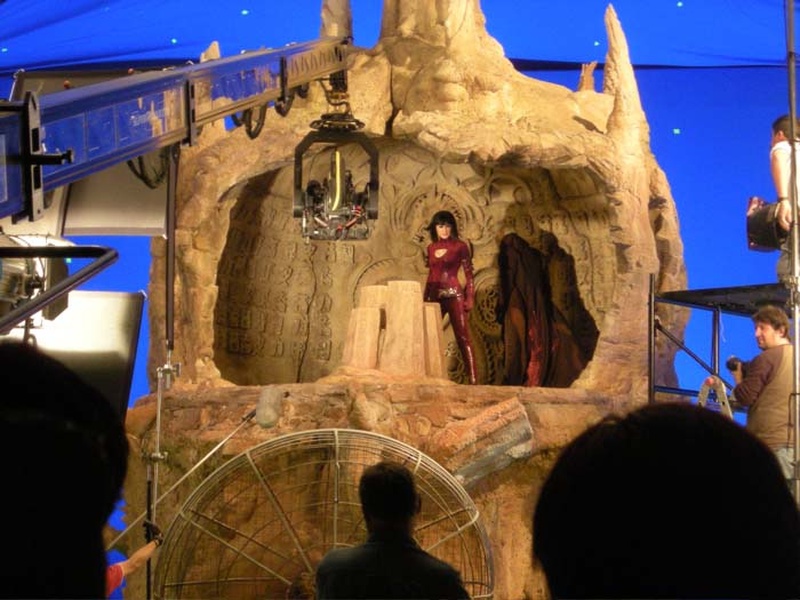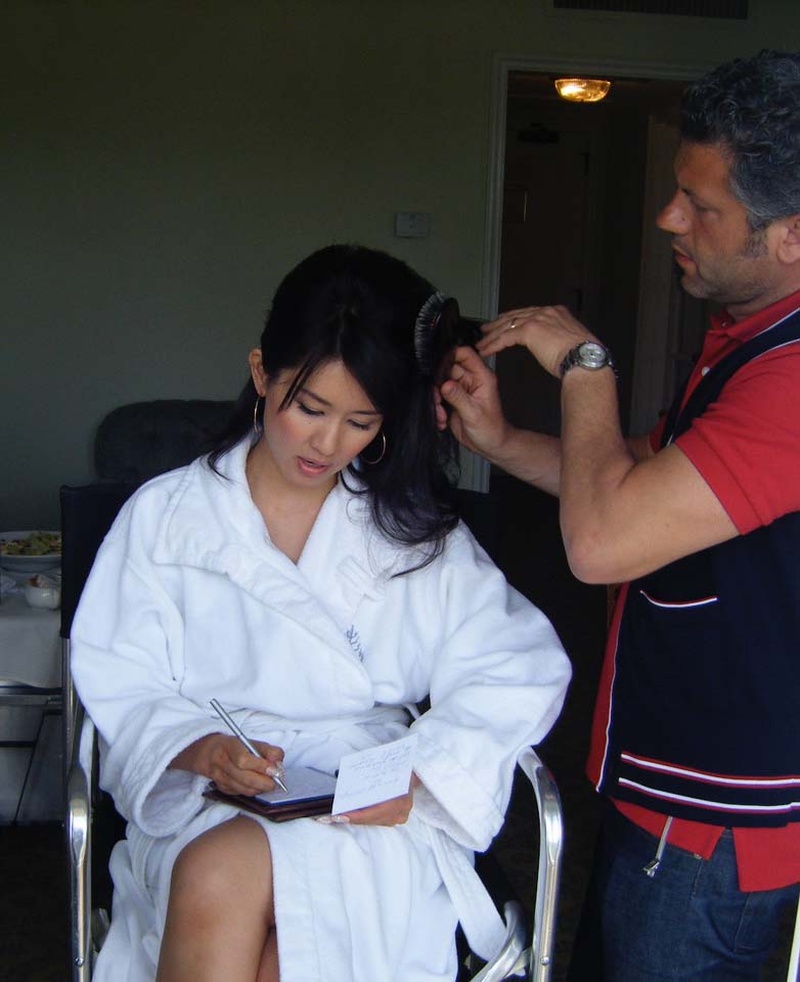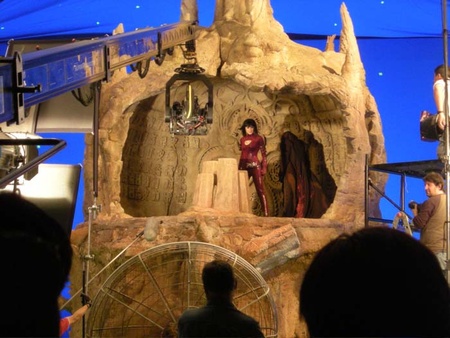Studying languages during breaks from filming dramas
In the 1990s, Tamura Eriko was an idol singer and actress in the Japanese entertainment industry. She moved to the United States in 2000 and after numerous auditions, won leading roles in 20th Century Fox's "Dragon Ball Evolution" and the popular TV drama "Heroes." We had the opportunity to talk to Tamura, who still lives in Los Angeles.
When asked why she wanted to go to America, having spent her childhood in Germany where her father was posted, Tamura, a returnee, replied, "I still remember how excited and thrilled I was when I first saw the movie 'ET' in a German movie theater when I was in sixth grade."
However, it would be some time before her dreams would connect with America. Tamura's first dream as a young girl was to become an idol singer in Japan. When she was an elementary school student, she would look at the Japanese magazines she subscribed to in Germany and imagine her dream of becoming a singer.
The year after she returned to Japan, she won an audition at the age of 14. She was scouted by record companies and agencies and began her career in show business. In 1989, she made her film debut in "Flowering Afternoon." In the same year, she appeared regularly in a TV drama and won numerous awards for new talent as a singer. She quickly became popular as a singer and actress and was working without time to sleep when in 1996, a turning point came for her.
"When I was given the opportunity to play the role of Hosokawa Gracia in the NHK historical drama "Hideyoshi". In the end, a child actor was going to play the childhood role of Hosokawa Tama (later known as Hosokawa Gracia), and the schedule I had set aside for filming suddenly had nearly a month free. So I decided to take on the challenge of studying abroad to learn a language, something I had always wanted to try. Why Santa Monica? The reason was that my manager, who had come with me when I had stayed in Los Angeles for recording, had found it for me, saying, "Eriko, why not Santa Monica? It's safe." My manager at the time also arranged for me to stay in Santa Monica. To be honest, I didn't even know where Santa Monica was. I got on a plane according to the schedule, arrived at my homestay, and started going to school the next day. I studied English every day, and after a month had passed, I returned to Japan to film the historical drama."
Language and racial barriers
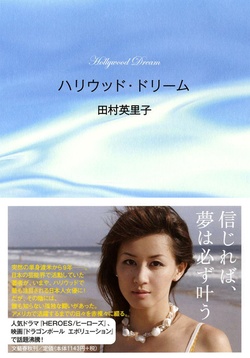
After that, Tamura came to Los Angeles alone in 2000. This time, he had to start from scratch. With no credit history, he had difficulty renting an apartment, so he started by renting a room with a roommate. "Like all the immigrants from all over the world, I started my life in America as the only foreigner."
At that time, I only had one thought: "I want to appear in an American movie." It was a vague dream, similar to the one I had as a child in Germany: "I want to be a singer when I return to Japan."
However, there was a language barrier, and she also experienced a racial barrier that she had never experienced in Japan. "When I first came to America, there were very few roles for Asians, and especially in the entertainment industry, it was a time when there were extremely few slots for minorities. The already very small slots for being Asian were made even smaller by the fact that English is not one of my native languages. Now, the proportion of Asians in the entertainment industry (film industry) is definitely increasing. I really feel that times are definitely changing for the better."
Whenever he attended acting classes at the time, he would encounter many talented actors who had no chance to perform on stage, and he recalls that this made him realize the limitations of his talent. "Every time I saw such talented people, I would ask myself, is there really any point in me being here?"
Being selected is a miracle
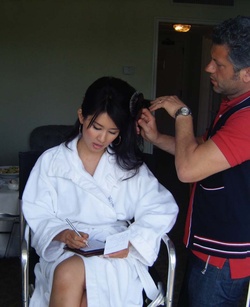
Still, Tamura kept knocking on Hollywood's door. The door never opened. Just when she had almost given up, in 2007, she made it through the auditions for "Dragon Ball Evolution" and received an offer through her agent a few months later. When asked what made her decide, she answered simply, "It was luck." "I myself, of course, really put in all my effort. I was devoting all my time and energy to it at the time, but I saw people who still couldn't get it, so I really think it was a miracle, luck, that I was chosen."
However, even then, she says she had little awareness that the place where she would be active was "Hollywood." "After appearing on American TV and in movies, I saw headlines in the Japanese news like, 'Tamura Eriko makes her debut in Hollywood movies,' and it dawned on me that I was in a Hollywood movie." For Tamura, "Hollywood" was never something to set high on her mind, but rather a place she found herself in after achieving the goal in front of her.
Then, in 2011, his hometown of Ibaraki Prefecture was hit by the Great East Japan Earthquake. After his parents returned from their overseas postings and lived in Ibaraki, he called them to California and started a life on the beach in Orange County, far from Hollywood. He wanted to spend time with his parents, but they told him that Japan was the place they were used to living in and that they didn't want to leave the place where they were born and raised.
"Having left Japan myself, I have a new appreciation for how wonderful it is. I realize that the things I took for granted when I was in Japan, such as consideration for others and respect, are things that only Japanese people have. I'm really glad that I came to America because I was able to feel anew my gratitude to the people who took care of me when I was a child. At the same time, there has been an increase in the number of people who took care of me when I was young passing away recently, and I feel frustrated that I wasn't in Japan when they passed away. Currently I use English every day, but I hope that one day I can find a job in Japan where I can use my English."
Tamura, who dreamed of becoming an idol singer in her teens and later also achieved her dream of appearing in a major American production, does not exude an aggressive aura at all. Her posture is supple and her way of speaking is gentle. When asked what brings her joy as an actress, she answered, "When the staff around me are happy. I feel relieved when I feel that I have been able to meet the director's expectations." Will her next destination to meet those expectations be America, or Japan?
© 2017 Keiko Fukuda


